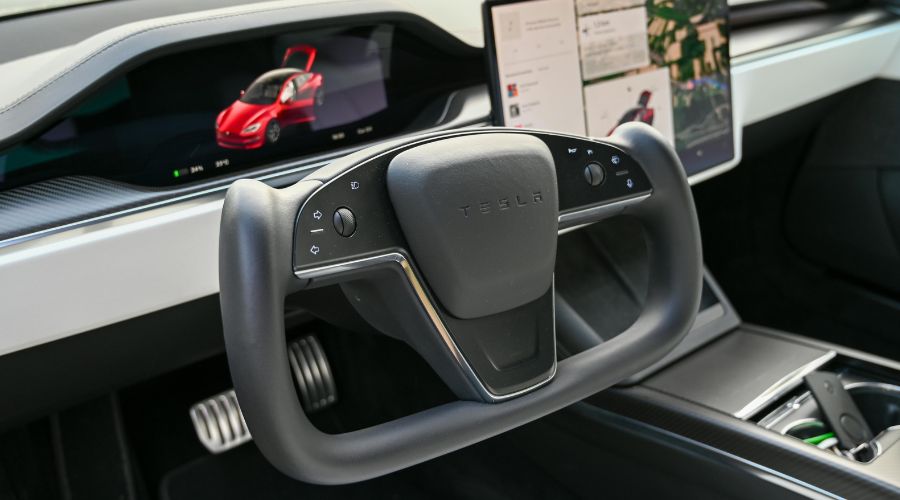How AI Is Creating the Next Wave of High-Demand Roles in EV Companies
junio 23, 2025 • César Daniel Barreto

The global demand for electric vehicles (EVs) is growing. Artificial intelligence is quietly revolutionizing not only how these vehicles operate, but also how they are made. From navigation systems to safety protocols, AI is driving innovation across the industry, creating a host of new roles that blend technology, responsibility, and ethical oversight.
According to a recent McKinsey survey, nearly 40% of US consumers are considering an electric vehicle as their next car. Statista also predicts that by 2025, the EV market will generate revenues exceeding $95 billion. The industry is growing rapidly, and with it, the demand for highly specialized positions is growing.
New roles shaping the EV industry
Data scientists, robotics engineers, software testers, and AI ethicists are among the most sought-after talent in this growing field. From emerging startups to industry leaders like Tesla, companies are actively seeking experts who can improve machine learning algorithms and the real-time behavior of vehicles.
Key roles include data scientists, who analyze large amounts of sensor data to predict component failures and improve battery efficiency. Robotic engineers are developing production systems based on automated precision to minimize errors and expedite assembly lines.
Quality inspectors play an equally important role, pushing AI systems to their limits to ensure they can correctly interpret traffic signals and operate safely under pressure. At the same time, ethicists and AI governance experts are brought in to build accountability and transparency into every design level.
Legal Impact of AI in Transportation
The rise of AI in transportation also brings challenges. As autonomous driving features develop, the legal and ethical issues they raise are also evolving.
During the Easter weekend in 2025, Chicago police reported multiple electric vehicle accidents, three of which occurred on the highway and another in which a car crashed into a residential building. These accidents aren’t just fender-benders, but raise serious questions about who is at fault. Victims often seek a personal injury lawyer in Chicago to help them get compensated in case of negligence.
Chicago-based TorHoerman Law Firm recommends that victims keep a comprehensive record of such incidents. They emphasize that liability often lies with developers and manufacturers, particularly when AI errors result from faulty training data or inadequate software updates.
These legal disputes underscore the need for greater regulation, and many experts believe they can serve as a catalyst for further improvements. As one analyst put it, “The issue is not blaming the technology, but making sure it’s safe enough for all of our roads.”
Building Trust in Self-Driving Systems
For electric vehicle manufacturers, public trust is as important as innovation. Accidents involving self-driving cars have raised concerns not only about software vulnerabilities but also about the adequacy of pre-deployment testing. Experts are calling for greater collaboration between AI developers, legal counsel, and ethics teams to close safety gaps before vehicles leave the factory.
Recommendations include equipping vehicles with redundant sensor systems, enhancing real-world simulations prior to deployment, and mandating external evaluations of AI performance. As cars get smarter, the systems that support them must become more robust.
An Industry in Transition
With global electric vehicle sales expected to exceed 10 million in 2024 alone, the electric vehicle industry is at a critical inflection point. It’s no longer just about reducing emissions or building the machines of the future, but about earning and maintaining public trust.
In the new landscape, the most successful companies will be those that invest not only in hardware but in people. Over the next decade, we’ll need not only top programmers and engineers but also experts in safety regulations, ethics, and legal compliance.
If talent, innovation, and responsibility continue to grow in tandem, the future of driving will not only be electric, but also safer, smarter, and more human-centric than ever before.

César Daniel Barreto
César Daniel Barreto is an esteemed cybersecurity writer and expert, known for his in-depth knowledge and ability to simplify complex cyber security topics. With extensive experience in network security and data protection, he regularly contributes insightful articles and analysis on the latest cybersecurity trends, educating both professionals and the public.